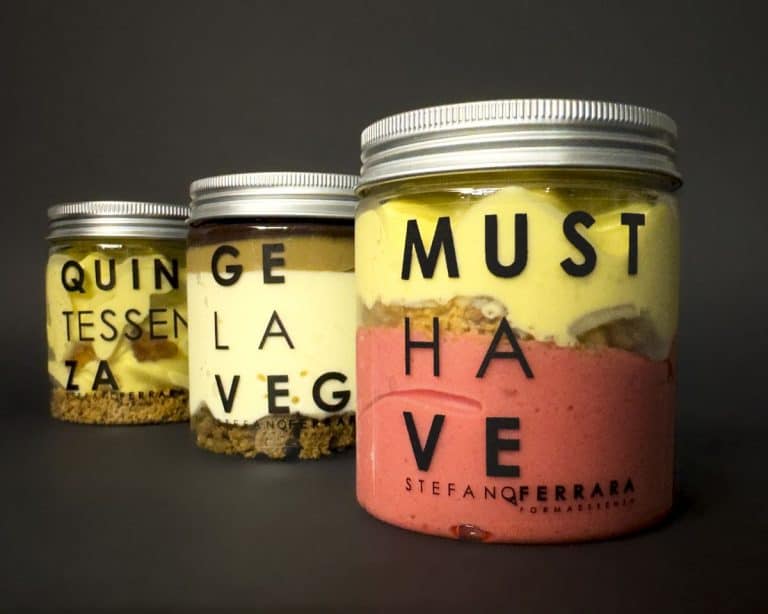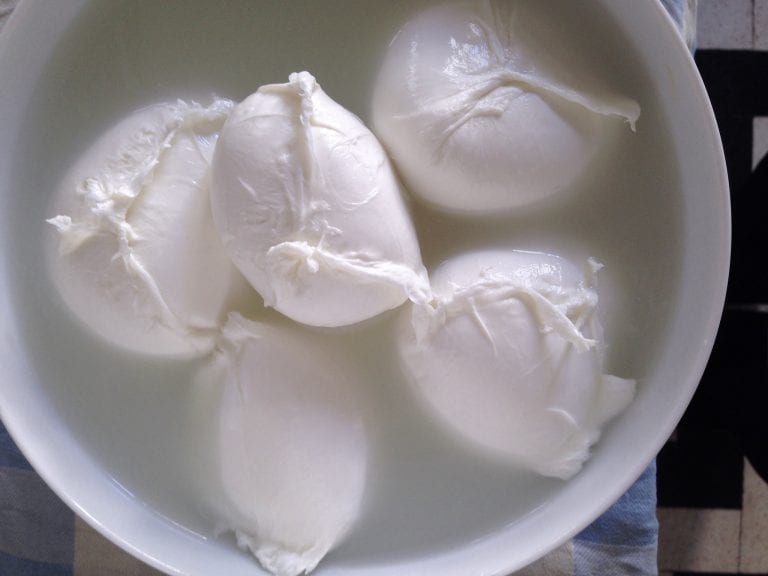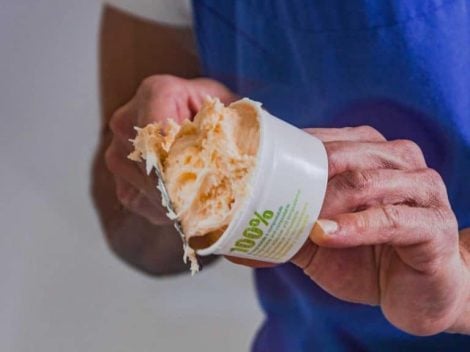Gelato with collagen
The sorbet in question is prepared with water, date juice, blueberry, lemon juice and hydrolysed collagen. "Let me start by saying that I love the classics," explains Manuele Presenti (founder of Gelato Naturale Academy), "and that when I eat a natural gelato, it must first of all be good. But if it's also functional and is good for us, even better." The gelato maker refers to all the ingredients used, especially collagen which in his product acts as a thickener: "The collagen molecule is 99.8% purely extracted from the skin of the fish, is odourless and has a neutral colour, it's water soluble, natural, contains no preservatives and is GMO free. In fact, this molecule, in addition to reducing skin aging, improves the absorption of calcium and amino acids." It's already widely used in many supplements, and Presenti has experimented combination with blueberry, date and lemon.
Ingredients and where to find it
"Blueberries bring veritable therapeutic action to our bodies thanks to their high content of polyphenols, which counteract oxidative stress and exert important anti-inflammatory action," specifies Dr. Marrico Maurelli. "They're also an excellent ally for blood circulation. Lemon also has a powerful antioxidant power thanks to its high levels of vitamin C, while dates are characterised by a high content of carbohydrates, fiber, minerals and vitamins of the B complex," which, let's remember, are sensitive to heat so therefore during cooking (in the case of gelato we speak of pasteurisation) reduces its overall vitamin content. "It's precisely to maintain all the properties that we have thought of a sorbet, which does not require pasteurisation," specifies Presenti, who will sell this product in his Chiccheria gelateria in Marina di Grosseto.
Focus on collagen
However, focus should be placed on collagen, which has become the protagonist of many supplements found on drugstore and pharmacy shelves. What exactly is it? It's nothing more than a protein in many cases deriving from the scraps of animal butchering (therefore not good for vegetarians and vegans), such as bones, heads, bones or assorted cartilage––a sort of broth––which is hydrolysed in these supplements, i.e. reduced in amino acids of lower molecular weight. It is also the most abundant protein in mammals and is concentrated in bones, tendons, cartilage, membranes, blood vessels, skin. Speaking of skin, collagen contributes, together with elastin, in maintaining firmness, elasticity and skin tone.
The alleged role of collagen supplements
But with the passing of time, production of collagen by fibroblasts decreases, making the skin less tight and less elastic. Now, according to the manufacturers of these supplements, the added collagen should reverse this process. "Should being the key word, here," explains science journalist Beatrice Mautino in her blog on Le Scienze, "For the moment, there is no solid scientific data to support these claims. Collagen supplement companies are investing heavily in order to demonstrate their effectiveness. By now there are dozens of studies in progress, some even methodologically well constructed, completely comparable to actual clinical trials, but they have two main limitations. The first is that none of these are truly "independent," because they are all run or funded by companies interested in proving that their products work. This does not mean that the results are invalid, but it forces us to read them with greater caution. The second limit is the most important and concerns the results that are never actually convincing."
Also because, if integrating our diet with collagen there's no certainty that this will be used (it's more likely to be in excess, since we introduce it daily through protein foods, and that it's therefore eliminated with feces) or that it is conveyed directly to the skin of the face (our body uses it where it's needed). So, if you want to eat a good gelato, rather than a hot broth made with bones and cartilage, remember that the first goal must be taste and pleasure and not the assimilation of substances to delay aging. Yet, if some benefit comes from it, so much the better...
by Annalisa Zordan

 Grillo phenomenon: Sicily is now betting on white wines
Grillo phenomenon: Sicily is now betting on white wines In Rome, a gelateria opens with only jarred ice creams. Master gelato maker Stefano Ferrara bans cones and cups
In Rome, a gelateria opens with only jarred ice creams. Master gelato maker Stefano Ferrara bans cones and cups Food shops, historic trattorias, and bakeries: where to eat in Esquilino, the Roman neighborhood that hasn't forgotten the Twentieth Century
Food shops, historic trattorias, and bakeries: where to eat in Esquilino, the Roman neighborhood that hasn't forgotten the Twentieth Century The 14 best Tintilia wines from Molise Chosen by Gambero Rosso
The 14 best Tintilia wines from Molise Chosen by Gambero Rosso Here's why mozzarella di bufala extends life
Here's why mozzarella di bufala extends life






